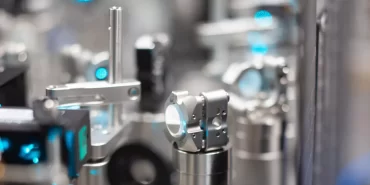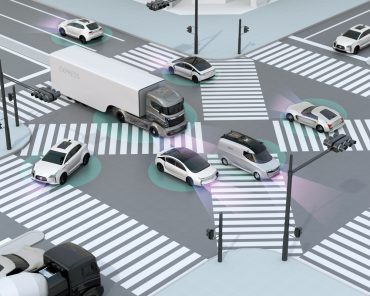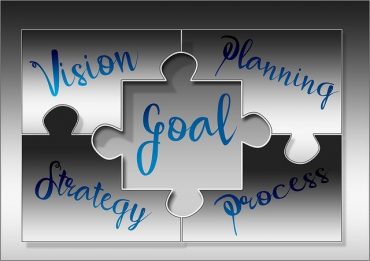
AI has changed software testing for good, and it continues to improve the processes associated with software development and testing.
The customer is king, and during software development, testers need to make sure customer satisfaction is guaranteed. That’s why the use of AI bots in software testing is inevitable.
During the software development lifecycle, software testing is crucial. It helps to detect any faults in the software that could affect the company or the application of the software in the future.
Software testing enables testers to know when there is a need to improve or change anything before the software is ready for use.
These days, software testing has changed with the invention of Artificial Intelligence tools. As a result, manual software testing is paving the way for machines by the use of artificial intelligence.
In this article, we are going to take a look at artificial intelligence tools for software.
But before that…some background.
What is Software Testing? Software testing is the process of assessing the performance of a program developed to check whether it is developed as per the company’s requirements and to find out whether there are faults and improve them before it is deemed ready for use.
Types of Software Testing: There are two types of software testing, namely:
- Manual testing: Manual testing is where software is tested by humans to find out whether there are defects with the software application. Testers check whether the software application adheres to the specified requirements in the documents and that it can meet the end-users’ needs.
- Automation testing: Automation testing is the use of automation tools to test software applications for defects and to make sure that software meets the company’s requirements.
Testing approaches: There are two testing methods.
- Static testing: With static testing, testers check documents and files to ascertain whether the software application is being developed according to the company’s requirements. At this stage, inspections, reviews, and walkthroughs are done.
- Dynamic testing: Dynamic testing is the validation of the software application. This is meant to ascertain that the software developed is the right one. At this stage, the real software is tested.
Reasons for the Use of AI in Software Testing
AI helps developers and testers identify faults much quickly before the software reaches QA. It helps to evade errors. Humans, no matter how careful they can be, they will make errors. On the other hand, computers are more accurate.
Since software testing is done using tools, the final results are more accurate than when done by hands. Also, AI helps to prevent repetition during testing.
Additionally, AI speeds software testing. Since machines are used to test software applications, the process takes a short time as opposed to manual testing, where humans have to do the testing repetitively. And even if there must be repetition during software testing, machines can do the work much faster hence saving time and money.
Artificial Intelligence Tools for Software Testing
Applitools: Applitools is a software testing tool that monitors software applications visually by the use of a sophisticated algorithm. Applitools helps professionals and teams, particularly in the area of DevOps, Digital Transformation, manual QA, engineering, and more. The tool identifies potential bugs and defects in the software application.
Appvance: This tool tests a software application based on user behavior. It is one of the most popular AI-driven tools out there. The tool is used to improve the performance, quality, and security of software applications. Appvance speeds up software testing and improves the agility of companies.
Functionize: Functionize is a cloud-based AI software testing tool designed for performance, functional, and load testing. The tool utilizes AI to improve the speed of test creation diagnosis and maintenance. The NLP engine processes the individual steps of a test plan written in English and converts them to automation.
Once tests are built, Functionize’s ML models update them as an application changes, saving the tedium of constantly updating/maintaining scripts for minor UI or style changes. The tool is fast, efficient, and easy to use. It’s also faster in that it runs thousands of tests in minutes from either mobile browsers or desktop.
Mabl: Mabl was developed by former Google employees who wanted to help software teams integrate reliable testing across the entire development lifecycle to help achieve the benefits of continuous delivery. The SaaS test automation platform executes functional tests for web applications across all major browsers.
With a GUI recorder, Mabl captures user intent and interactions and creates an automated test script. As a web app changes under development, its AI-driven test automation framework automatically updates tests to alleviate test maintenance burden. The machine learning engine also identifies visual and performance regressions over time.
Its built-in link crawler looks for broken links and JavaScript errors, and over time, prioritizes test coverage needs based on page depth, complexity, and existing tests on the page. With an intuitive test automation framework and cutting-edge AI technology, Mabl makes continuous testing both easy and scalable.
Eggplant AI: Eggplant is also another incredible AI tool for software testing that uses different concepts from model-driven software development. The tool generates test cases by use of the SUT model.
The tool does the following actions during software testing:
- Detecting bugs: The tool searches for common patterns that can indicate the presence of bugs.
- Evaluation of coverage: The tool performs coverage analysis in terms of data, actions, and states.
Eggplant is a powerful tool that uses different sophisticated algorithms to achieve different goals.
Sealights: Sealights is also a web-based AI software testing tool for developers and quality assurance professionals.
Testers don’t have much time to do repetitive testing. This tool helps them. The tool offers machine-learning technology that evaluates the codes and the tests being executed against the codes.
With Sealights, testers can know the actual coverage of the tests. The tool executes different types of tests from performance, unit test, functional, manual testing, and more.
Testim: Testim is an AI-based software testing platform that allows users to create resilient end-to-end tests that are coded, codeless or both. Testim includes Smart Locators to keep tests stable and reduce maintenance. It accelerates testing by executing parallel, cross-browser tests on Testim or 3rd party grids. The platform also integrates with developer tools, allowing users to stay in their workflow to create tests, branch tests, collaborate and trigger test runs on CI builds. For troubleshooting, Testim aggregates error types, providing relevant data, and showing before/after screenshots. When found, bugs are documented and shared in a bug tracking tool.”
How AI is Changing Software Testing
AI helps in identifying complex areas of companies: Software testing is an important process during the software development lifecycle. And in times when developers don’t have the time and resources to execute exhaustive testing of the software applications, software testing can aid in detecting areas within an organization that requires attention.
Generally, software testing consumes time, resources, and money. For this reason, AI can help to speed up software testing as every process is automated.
Another way AI is changing software testing is that it doesn’t require too much human effort since AI helps in detecting problems and defects hence speeding up the testing process.
It has simplified software testing: During software testing, software developers must work with huge amounts of data and testing scripts. AI uses sophisticated algorithms that can analyze large amounts of data quickly and efficiently. AI improves accuracy in the program as well.
AI eliminates guesswork, and developers can get an idea of what needs to be changed since it can detect defects in the software application and provide developers with complete information on where testing is needed and where there is a need for change.
AI will lessen bugs: With manual testing, elimination of bugs isn’t easy, and because bugs are an enemy of user experience, software testing is important to make sure they are detected and eliminated before the software reaches the QA.
Usually, bugs enter the program undetected, but with the use of AI, software developers can know when the bugs entered the program, how, and where they came from.
AI can also test for bugs and identify errors that developers can use to improve the code.
Testers can also use the information generated by AI to know whether more coding is required to protect the program against bugs. This way, bugs are eliminated during the software development process.
AI has led to the automation of the software testing process: Lack of time during software development makes developers push software applications to the market without testing them thoroughly at every stage. This way, users end up with software that is full of errors and mistakes. Insufficient budget also hinders companies from hiring experts to take care of the software testing process.
Software testing is a repetitive process where each program needs to be evaluated at every phase, and the repetitive manual testing consumes a lot of time. AI uses a set of algorithms to analyze software functions and identify errors through automated testing, thus minimizing the headaches of repetitive software testing tasks and improving accuracy.
AI improves testing capabilities: Software testing is a continuous process of the software development lifecycle. And because testing needs to be done at each stage, manual testers can find it challenging due to the stresses associated with each test.
AI, through machine learning, helps to generate test data where testers can feed the data into an AI machine allowing it to perform various tests at every stage without the need for manual testing hence improving reliability and security of the software.
Final Words
Artificial intelligence is dominating each area of our lives. Just recently, AI found its way into the software development process.
AI has changed software testing for good, and it continues to improve the processes associated with software development and testing. Even though some companies are yet to adopt AI within their practices of product engineering, it’s no doubt this technology is here to stay.



























